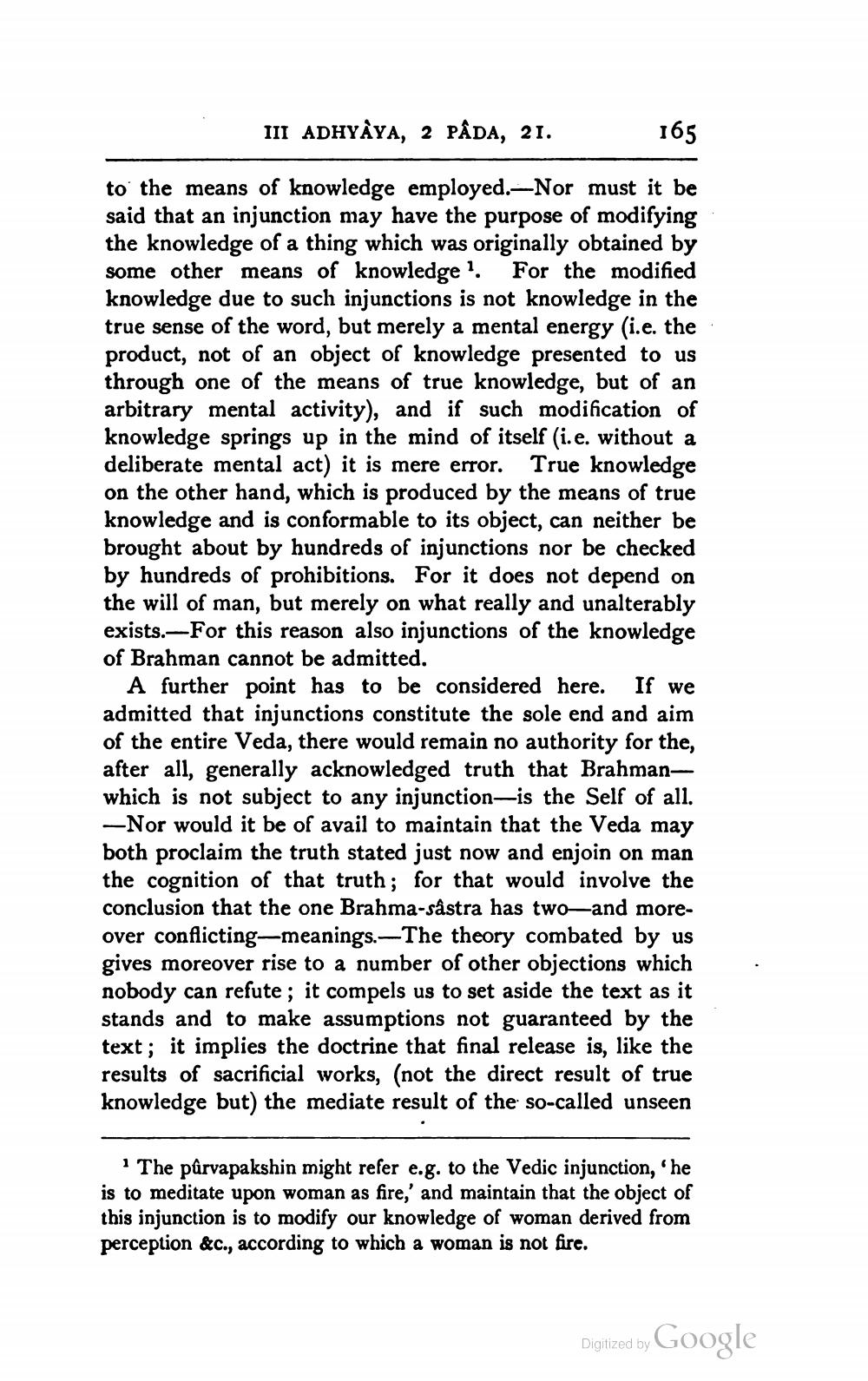________________
III ADHYÀYA, 2 PÂDA, 21.
165
to the means of knowledge employed.-Nor must it be said that an injunction may have the purpose of modifying the knowledge of a thing which was originally obtained by some other means of knowledge. For the modified knowledge due to such injunctions is not knowledge in the true sense of the word, but merely a mental energy (i.e. the product, not of an object of knowledge presented to us through one of the means of true knowledge, but of an arbitrary mental activity), and if such modification of knowledge springs up in the mind of itself (i.e. without a deliberate mental act) it is mere error. True knowledge on the other hand, which is produced by the means of true knowledge and is conformable to its object, can neither be brought about by hundreds of injunctions nor be checked by hundreds of prohibitions. For it does not depend on the will of man, but merely on what really and unalterably exists. For this reason also injunctions of the knowledge of Brahman cannot be admitted.
A further point has to be considered here. If we admitted that injunctions constitute the sole end and aim of the entire Veda, there would remain no authority for the, after all, generally acknowledged truth that Brahmanwhich is not subject to any injunction-is the Self of all.
-Nor would it be of avail to maintain that the Veda may both proclaim the truth stated just now and enjoin on man the cognition of that truth; for that would involve the conclusion that the one Brahma-sästra has two-and moreover conflicting-meanings.---The theory combated by us gives moreover rise to a number of other objections which nobody can refute; it compels us to set aside the text as it stands and to make assumptions not guaranteed by the text; it implies the doctrine that final release is, like the results of sacrificial works, (not the direct result of true knowledge but) the mediate result of the so-called unseen
The pûrvapakshin might refer e.g. to the Vedic injunction, 'he is to meditate upon woman as fire,' and maintain that the object of this injunction is to modify our knowledge of woman derived from perception &c., according to which a woman is not fire.
Digitized by




